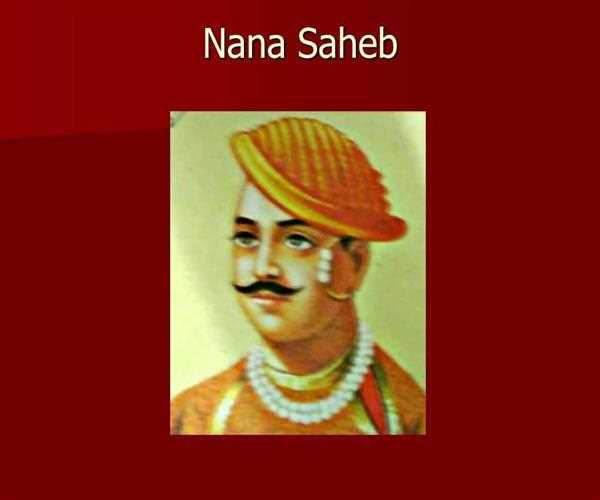Nana Sahib…. He was neither caught nor slaughtered by the British

Nana Sahib otherwise called Dhondupant was the adjusted child of ousted last Peshwa Baji Rao II. He assumed imperative part amid the Sepoy Mutiny of 1857 as named by the Englishmen while Indians guaranteed it as the first war of Indian freedom. All Maratha powers revitalized around him amid the struggle. He was all around bolstered by his president Tantya Tope in the war. The defiance was the result of the ludicrous strategies of Lord Dalhousie of East India organization, their tenet of a slip by, abuse of local troops and lubing of rifle cartridges with a fat of pigs and cow. He must be decisively rebuked for the uprising. He was in rush to get royal states and prevailing with regards to raising the income to the organization. In any case, he did extraordinary harm to the association and sowed the seeds for disdain and dissatisfaction in Indians. The Englishmen who came before as merchants gradually dug in themselves in the nation and got engaged with the nearby political fights between different august states alongside the French men. They soon turned out to be intense with the decay of energy of Mughals at Delhi. After the clash of Plassey in 1757 battled against Nawab Sirajuddaula of Bengal by Lord Clive of East India Company and they nearly progressed toward becoming experts of vast territories and within a couple of years, their impact spread all through India. In south as well, they turned out to be capable after the thrashing and demise of Mysore tiger Tippu Sultan the leader of Mysore kingdom at Srirangapatnam. He was viewed as an exceptionally incredible and grave risk to the Englishmen in India.
EARLY LIFE
Dhondu gasp was destined to Narayan Bhatt and Ganga Bai in 1824. In 1827 his folks went to the court of the last Peshwa Baji Rao II. Nana Sahib was received by Baji Rao on 7 June 1827, and in this manner, he moved toward becoming beneficiary possible to the position of authority. Nana Sahib was accomplished. He considered Sanskrit, however, had no Western training. He bought into all the main Anglo-Indian diaries which were meant to him every day by a person. He was hitched to a cousin of the Chief of Sangli. Tantia Tope and Nana Sahib were dear companions from youngster hood. Rani Laxmi Bai and Nana Sahib were to a great degree enamored with each other from their adolescence. He had a great stable of stallions, elephants, and camels. His ordinance was supplied with weapons of each age and nation. He moved unreservedly out in the open and graced by his essence on all events of celebration and ceremony.
He was much glad for his introduction to the world and being an Indian. He was exceptionally enamored with engaging the English nobility at Kanpur and from time to time masterminded parties in the European style in his chateau at Bithoor ( in UP). His liberality charmed him to the Englishmen who interacted with him. They all applauded him with one voice for his liberality and cordiality. His insight into English, be that as it may, was sparse. Nana Sahib, however, disliked different changes of the English men.
Cheers!